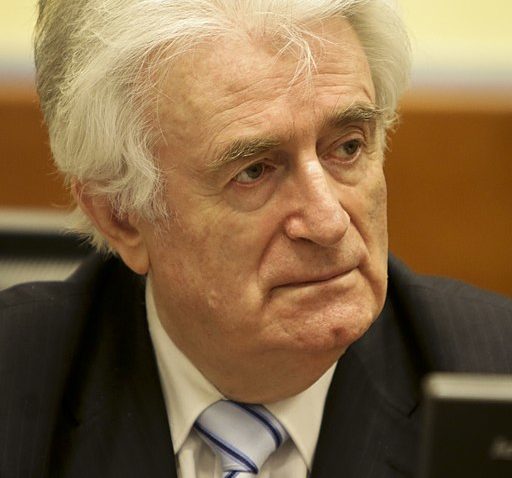Compiled by Eva Jovanova and Hristo Voynov
1. Bosnian Serb ex-President of Republika Srpska, Radovan Karadzic, was sentenced to a life sentence this Wednesday. The United Nations Criminal Tribunal for the Former Yugoslavia in the Hague increased Karadzic’s initial sentence from 40 years to a life sentence. He was convicted on charges of genocide, war crimes, and crimes against humanity. Karadzic was first arrested in 2008 in Belgrade, after having spent ten years in hiding. In 2016 he was charged with 40 years in prison for running ethnic cleansing operations, the siege of Sarajevo, and the genocide in Srebrenica in 1995 that resulted in the killing of 8.000 Muslims. This was the most important trial in the history of the ICTY, and Karadzic was the highest profile figure convicted in the trials.
2. Hungarian Prime Minister Viktor Orban’s party, FIDESZ, is officially suspended from the European People’s Party (EPP), creating some confusion over whether they were voted out or they suspended their own membership. This is because Orban stated that FIDESZ unilaterally left the EPP, while in reality, it was a joint proposal which was approved by those in the EPP. This will ultimately help the EPP because FIDESZ’ controversial membership threatened it in the upcoming European elections. The self-expulsion claim is very different from his previous stance when Viktor Orban was asking EPP to reconsider expelling FIDESZ. This now begs the question of whether this is the beginning of Huxit.
3. Protests in the Balkans continued this week as well. The Serbian anti-government protests entered their third month. Their front, however incoherent, calls for the resignation of Serbia’s President Aleksandar Vucic. The protests in Montenegro are similar in nature and might result in early elections in the country. The organizers of the “Resist!” movement offered terms to the opposition parties in the country on forming a new national unity government. Protests continued in Albania as well, and their intensity seems to be abating as more MPs from the Socialist Movement decide to take their seats in Parliament.
4. Following the charges against Slovakian Businessman Marian Kočnerfor the murder of journalist Jan Kuciak and his fiancée, more information is coming out in court filings. As an early suspect, by April 2018 (less than two months after the murder), he had considered the possibility of getting caught. His connection to those that carried out the murder has also been given much attention, and it appears as though the entire group behind it is now in police custody. But the most interesting development is that one of the country’s top prosecutors resigned after it was revealed that he had conversations with Alena Zsuzsová years ago, one of the 4 charged alongside Kočner. This is highly relevant to one detail revealed in this weeks court filings; that Zsuzsová worked with Kočner to get information to be used against prominent figures for blackmail.
5. North Macedonia can hope to begin negotiation talks with the EU this June. The EU Foreign Policy chief Federica Mogherini stated on Wednesday that it is a joint objective to give the country the green light in June for opening negotiations. North Macedonia changed its name earlier this year from the Republic of Macedonia to eventually join the EU and NATO, as the name issue was the biggest issue that the country was facing previously. It gained its EU candidate status in 2005, but each time when opening negotiations was on the table, it was blocked by Greece. On Tuesday on another occasion, the EU Commissioner for Enlargement Negotiations and Neighborly Policy, Johannes Hahn, claimed that regardless of how courageous and determined the Macedonian leadership was to bring the country into the EU, the reform process has to continue.
6. The Ukrainian Prosecutor-General Yuriy Lutsenko made an explosive claim that the U.S. Ambassador to Kyiv Marie Yovanovitch gave him a list of individuals who should not be prosecuted. The US State Department denied these accusations, while many in Ukraine are calling for Lutsenko to either present proof of his claims, or be fired for his accusations. Poroshenko came out in support of the Ambassador, stating that she has his full support. This adds to the many unanswered questions of how intertwined domestic Ukrainian and U.S. politics are, as reports from before the 2016 US presidential election indicated that Poroshenko was helping Hilary by providing information tying Trump’s first campaign manager, Paul Manafort, to Viktor Yanukovych, the disgraced pro-Russian president who left the country following EuroMaidan.


0 comments